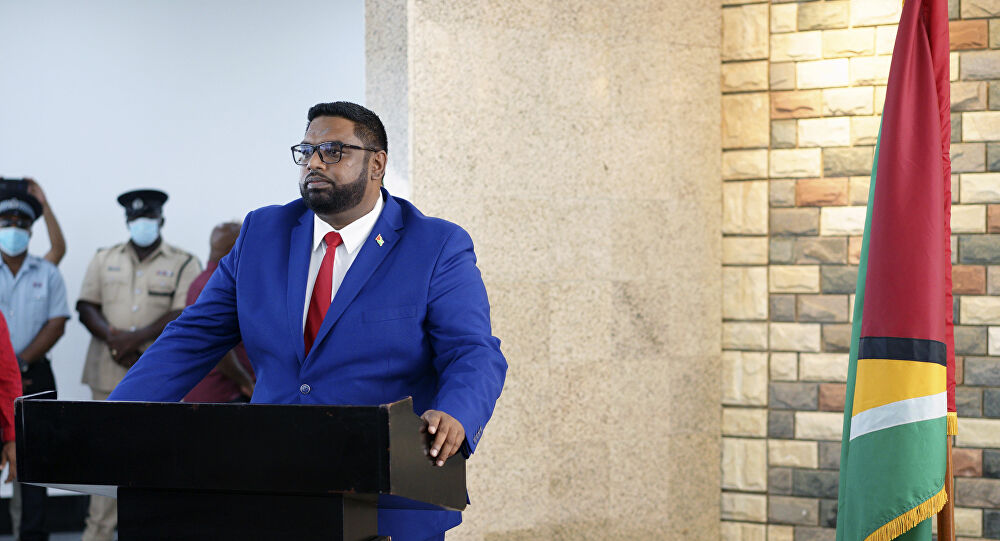RIO DE JANEIRO, BRAZIL – Five months after the parliamentary elections and barely three months after a vote recount had already confirmed the victory of Mohamed Irfaan Ali of the People’s Progressive Party/Civic (PPP/C), the victor in the election was finally allowed to be sworn in this week as the tenth president of Guyana and to appoint his cabinet.
The People’s National Congress Reform (PNC-R) party, which has been in power up to now, rejected and challenged the very narrow election results for a long time. Their aim was to have former president David A. Granger reinstated. Notwithstanding, the PPP/C has now taken over the government.
President Ali’s main aim is to reactivate the private sector, which was already in trouble before the coronavirus pandemic and is now in an even more tense situation. First meetings with private sector representatives were held last week.

However, the medium-term economic outlook for the country seems promising. Because of the recently discovered vast oil and natural gas reserves, the International Monetary Fund (IMF) projected an economic growth rate of 86 percent for this year, according to the BBC, albeit before the coronavirus crisis. No country in the world has such projections. The World Bank was also very positive about the expected economic growth.
The parliamentary elections in the small English-speaking country on March 2nd closed with an extremely close result. In contrast to the preceding election, the left leaning PPP/C won an extra seat and reached 33 out of 65 deputies. The PNC-R, which has been in government since 2015, lost two seats and became the second strongest party with 31 deputies. One seat was won by a party alliance, which had declared beforehand that it would only join a government of national unity and would not support a PPP/C or PNC-R government. The hitherto opposition Progressive People’s Party accused the Granger government of having hired a US lobby company using tax funds.
The Minister of Security and Prime Minister candidate, Khemraj Ramjattan, accused the PPP/C of having received support from Russia. Three people “with a Russian background” had allegedly tried to hack into the election commission’s computers. The Russian commodities group Rusal, the world’s largest producer of aluminum, suspended all its activities at the Rusal mine in Kwakwani in eastern Guyana four weeks before the election. As a result, 300 staff lost their jobs. A politically motivated background was suspected.
Under Ali’s Vice-President, Bharrat Jagdeo, who was President of Guyana between 1999 and 2011, the small country in the north of South America strengthened its relations with China and Russia. In 2010, Jagdeo urged Russia to play a greater role in the Caribbean, to which Guyana belongs culturally and historically.
In turn, under the PNC-R government, the contract for newly discovered oil deposits was awarded to the US ExxonMobil group. The rewriting of the country’s oil laws was undertaken by a company closely associated with the US oil company. A swing towards the old policy of the PPP/C governments is obvious.
With Ali, the South Asian minority group in Guyana returns to power. Almost 40 percent of the country’s population has ancestors in the formerly British Imperial India, now Bangladesh, India, and Pakistan. In contrast, almost 30 percent of the population has ancestors on the African continent, 20 percent are mixed-race and ten percent are indigenous. With Irfaan Ali, a South American country has for the first time an Islamic head of state.

